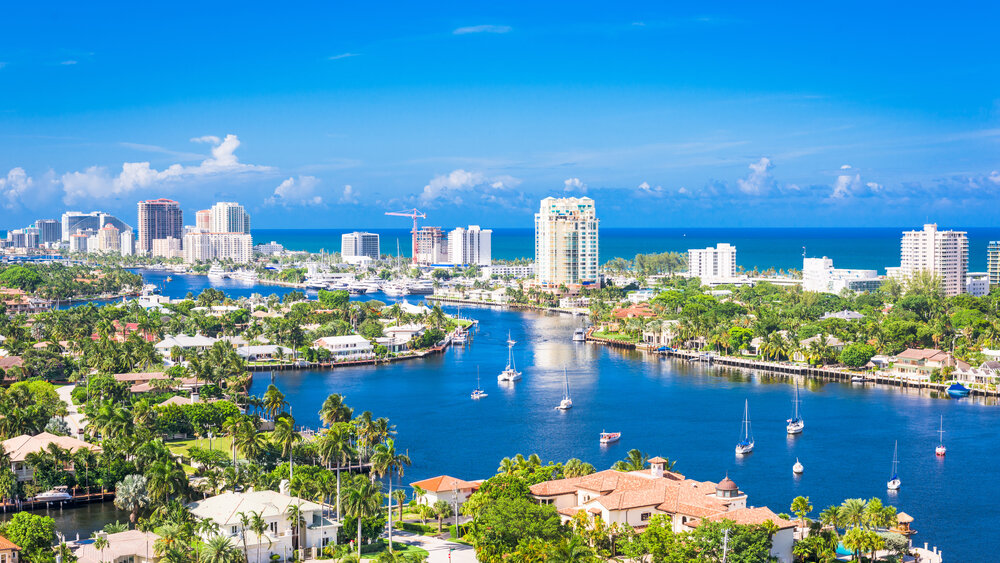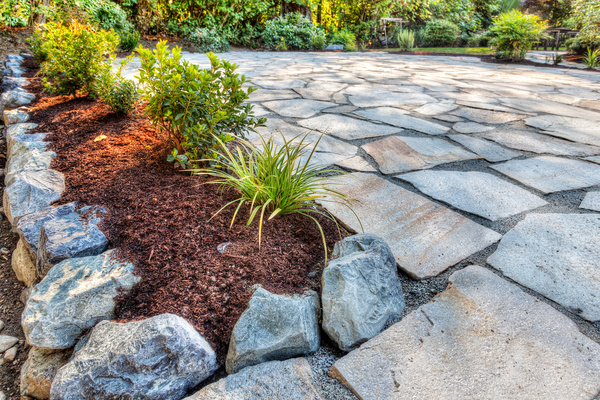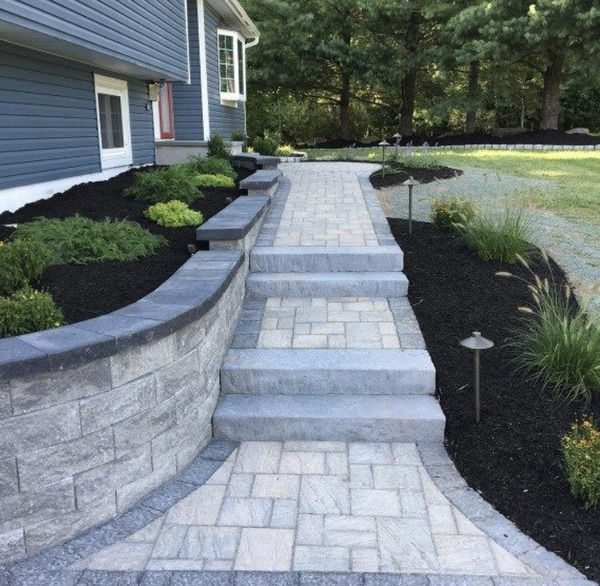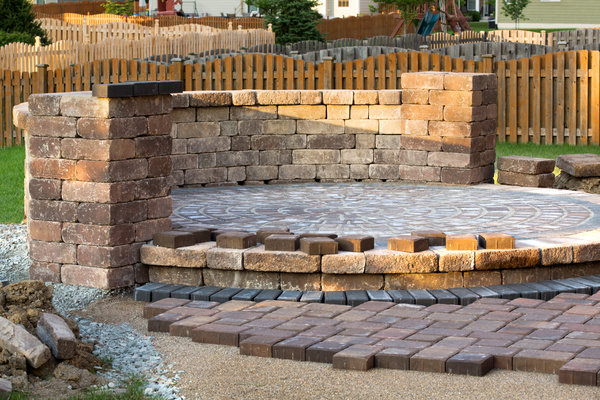
Granite is the natural stone of granite quarries. It has an appeal that makes it a popular choice for outdoor projects. If you want to build or remodel your home with granite materials, don’t hesitate in choosing this material as one of the main building blocks! To know more about Pool Deck Masonry Click Here
Brick has been a leading construction material for many years. It is durable and reliable. Brick can withstand extreme temperatures so it is an excellent choice to make outdoor kitchens. Brick will not burn or cause damage to your kitchen's structure when temperatures rise. A customer service representative will match the homeowner's specifications. The masonry contractor can then deliver the outdoor kitchen of dreams.
One way to prevent this problem is to use ties. These are strips of corrugated steel that are bolted through the bottom of the building's structural wall and into the mortar joint. These ties cannot be seen when the wall is finished, but they can be easily identified if there are cracks or movement in the brick veneer. In addition to being a hazard, missing ties can lead to expensive problems such as shifting and failure of the wall's foundation. If you find that the ties have failed, use a Simpson Heli-Tie to replace them.
Are you in need of a masonry contractor that can handle all kinds of masonry projects? Look no further than Fort Lauderdale Masonry. We're a masonry contractor that specializes in residential and commercial projects, so you can trust us to deliver high-quality workmanship every time.
Brickwork is masonry produced by a bricklayer, using bricks and mortar. Typically, rows of bricks called courses[1][2] are laid on top of one another to build up a structure such as a brick wall.
Bricks may be differentiated from blocks by size. For example, in the UK a brick is defined as a unit having dimensions less than 337.5 mm × 225 mm × 112.5 mm (13.3 in × 8.9 in × 4.4 in) and a block is defined as a unit having one or more dimensions greater than the largest possible brick.[3]
Brick is a popular medium for constructing buildings, and examples of brickwork are found through history as far back as the Bronze Age. The fired-brick faces of the ziggurat of ancient Dur-Kurigalzu in Iraq date from around 1400 BC, and the brick buildings of ancient Mohenjo-daro in present day Pakistan were built around 2600 BC. Much older examples of brickwork made with dried (but not fired) bricks may be found in such ancient locations as Jericho in Palestine, Çatal Höyük in Anatolia, and Mehrgarh in Pakistan. These structures have survived from the Stone Age to the present day.
Brick size may be slightly different due to shrinkage or distortion due to firing, etc.
An example of a co-ordinating metric commonly used for bricks in the UK is as follows:[4][5][6]
In this case the co-ordinating metric works because the length of a single brick (215 mm) is equal to the total of the width of a brick (102.5 mm) plus a perpend (10 mm) plus the width of a second brick (102.5 mm).
There are many other brick sizes worldwide, and many of them use this same co-ordinating principle.
As the most common bricks are rectangular prisms, six surfaces are named as follows:
Mortar placed between bricks is also given separate names with respect to their position. Mortar placed horizontally below or top of a brick is called a bed, and mortar Placed vertically between bricks is called a perpend.
A brick made with just rectilinear dimensions is called a solid brick. Bricks might have a depression on both beds or on a single bed. The depression is called a frog, and the bricks are known as frogged bricks. Frogs can be deep or shallow but should never exceed 20% of the total volume of the brick. Cellular bricks have depressions exceeding 20% of the volume of the brick. Perforated bricks have holes through the brick from bed to bed, cutting it all the way. Most of the building standards and good construction practices recommend the volume of holes should not exceed 20% of the total volume of the brick.[7]
Fort Lauderdale (/ˈlɔːdərdeɪl/ LAW-dər-dayl) is a coastal city located in the U.S. state of Florida, 30 miles (48 km) north of Miami along the Atlantic Ocean. It is the county seat of and largest city in Broward County with a population of 182,760 at the 2020 census,[7] making it the tenth largest city in Florida. After Miami and Hialeah, Fort Lauderdale is the third largest city in the Miami metropolitan area, which had a population of 6,166,488 in 2019.[11]
Built in 1838 and first incorporated in 1911, Fort Lauderdale is named after a series of forts built by the United States during the Second Seminole War.[12] The forts took their name from Major William Lauderdale (1782–1838), younger brother of Lieutenant Colonel James Lauderdale. Development of the city did not begin until 50 years after the forts were abandoned at the end of the conflict. Three forts named "Fort Lauderdale" were constructed including the first at the fork of the New River, the second at Tarpon Bend on the New River between the present-day Colee Hammock and Rio Vista neighborhoods, and the third near the site of the Bahia Mar Marina.[13]
Known as the "Venice of America", Fort Lauderdale has 165 miles of inland waterways across the city.[14] In addition to tourism, Fort Lauderdale has a diversified economy including marine, manufacturing, finance, insurance, real estate, high technology, avionics/aerospace, film, and television production. The city is a popular tourist destination with an average year-round temperature of 75.5 °F (24.2 °C) and 3,000 hours of sunshine per year. Greater Fort Lauderdale, encompassing all of Broward County, hosted more than 13 million overnight visitors in 2018.[15] Each year nearly 4 million cruise passengers pass through its Port Everglades, making it the third largest cruise port in the world.[16] With over 50,000 registered yachts and 100 marinas, Fort Lauderdale is also known as the yachting capital of the world."[17]
Main articles: History of Fort Lauderdale, Florida and Timeline of Fort Lauderdale, Florida
The area in which the city of Fort Lauderdale would later be founded was inhabited for more than two thousand years by the Tequesta Indians.[18] Contact with Spanish explorers in the 16th century proved disastrous for the Tequesta, as the Europeans unwittingly brought with them diseases, such as smallpox, to which the native populations possessed no resistance. For the Tequesta, disease, coupled with continuing conflict with their Calusa neighbors, contributed greatly to their decline over the next two centuries.[19] By 1763, there were only a few Tequesta left in Florida, and most of them were evacuated to Cuba when the Spanish ceded Florida to the British in 1763, under the terms of the Treaty of Paris (1763), which ended the Seven Years' War.[18] Although control of the area changed between Spain, the United Kingdom, the United States, and the Confederate States of America, it remained largely undeveloped until the 20th century.[citation needed]
Masonry contractor
Brick work
Paver installation
Masonry repairs
Masonry restoration
Bricklaying
Stone masonry
Concrete pavers
Brick mason
Masonry construction
Bricklaying services
Paver repairs
Masonry renovation
Brick veneer
Masonry craftsmanship
Paver contractor
Masonry company
Brick wall construction
Masonry maintenance
Paver installation company
Masonry restoration services
Brickwork contractor
Stone veneer installation
Paver maintenance
Masonry wall repairs
Brick patio installation
Masonry foundation repairs
Paver renovation
Brick and stone repair
Paver sealing
Masonry retaining walls
Paver walkways
Masonry waterproofing
Brick fireplace construction
Paver driveway installation
Masonry facade repair
Brick archways
Paver patio design
Masonry tuckpointing
Paver pool deck installation
Masonry crack repairs
Brick facade restoration
Paver edging
Masonry column installation
Paver pathway construction
Masonry stone repairs
Brick wall repointing
Paver hardscaping
Masonry arch construction
Brick patio restoration
Paver sealing services
Masonry lintel replacement
Brick porch construction
Paver driveway repairs
Masonry facade renovation
Brick mailbox installation
Paver walkway designs
Masonry parapet repairs
Brick retaining wall
Paver pool area construction
Masonry step repairs
Brick wall reinforcement
Paver fire pit installation
Masonry corner repairs
Brick foundation restoration
Paver pathway designs
Masonry joint repairs
Brick patio repairs
Paver driveway designs
Masonry coping replacement
Brick arch construction
Paver patio repairs
Masonry facade rebuilding
Brick wall renovation
Paver outdoor living spaces
Masonry balcony repairs
A fire pit repair that is done by a masonry contractor is a great way for you to keep the heat in your yard all year. A well-constructed outdoor fire place can last generations. However, cracks and other damage can quickly occur to the mortar or bricks. Its lifespan can be reduced by poor construction and being exposed to moisture. Cracks in the chimney may allow heat or flue gases to escape.
To prevent your chimney leaking, a masonry contractor can repair or build a crown. Crowns cover the top of a masonry chimney. They are typically 3 inches thick at their thickest point. A crown should be slightly angled so that it extends over the chimney's base. The crown is made of quality cement and is resistant to the elements. The average cost of repairing a crown is $60-$3,000 depending on its condition. It is more complicated than simple crown repairs and it is important to consider the material used in order to determine the cost. Below is a table listing the most popular materials and their respective repair costs. You can consult an expert to get a better idea of the price you should expect to pay.
Sometimes, masonry repair includes filling in cracks or replacing damaged stone slabs. Sometimes, this involves the removal of damaged stone slabs and their replacement with new ones. Other solutions might include concrete filling and caulking. A masonry contractor may be able to recommend the best solution. When the repairs are finished, the building will look beautiful again.
Veneer is a decorative material oftentimes used when veneering over the surface of brick and other stone. veneer refers to specially treated engineered timber sheets which are applied on top of another surface to create an architectural finish or texture, such as for use in making room dividers out of some materials; sometimes known as "trim". Veneer comes in many styles and sizes depending upon the size and type of project being completed by your masonry company.
Safety is key to your home. If your chimney isn't ventilated properly, creosote can buildup over time. If your chimney hasn't been inspected recently, you should make an appointment. The inspection will let you know if there are any issues and can help you reduce the damage to the chimney.Although quality masonry may be strong and durable, cracks can occur and chimneys may deteriorate. Poorly applied mortar could lead to premature decay and deterioration. Additionally, moisture issues can lead to further damage to brickwork. Even if the chimney appears to be intact, it is possible that you will need to replace bricks or even replace the whole structure.
Customer Service: At ABC Masonry, we understand that our clients are our top priority. Our team is dedicated to providing excellent customer service and support, from the initial consultation to the final inspection.

Masonry construction is characterized by its usage of mortar, brick and stone. Mortar is a mixture of clay, sand, and Portland cement that is used to build walls, floors, foundations etc. Concrete/stone masonry uses cement, rocks or shells in the mix which creates a more durable product with waterproofing and reinforcement capabilities. Steel masonry utilizes hot rods or rebar in order to create strong supports for structures while also utilizing bricks as a main building material. Lastly drywall and brick are both versatile materials that can be customized to fit any home's style To know about Pool Deck Click Here
Fireplaces and Chimneys: A fireplace or chimney is a beautiful and functional addition to any home or business. Our team can design and build a custom fireplace or chimney that meets your specific needs and aesthetic preferences.
A masonry contractor must be licensed to provide construction services in their area. This license ensures that the contractor has the knowledge and experience to complete a project correctly and to follow the rules and regulations of the state licensing board. Hiring a licensed masonry contractor is a good idea because they will know the ins and outs of the craft. Once a licensed masonry contractor completes the project, he will be able to answer any questions that may arise during the process.
There are many reasons you might need to replace a crown. However, not all problems can be handled by a general contractor. Because of their vast experience and knowledge, a masonry contractor can do this job best. Crown repair is usually quite affordable. However, it is important that you know what the costs are before hiring a contractor. The average cost for crown repairs is $60-$3,000. However, the severity of your damage will impact the price.
The cost of a brick veneer wall varies depending on the size of the job, time of year, and regional factors. Labor costs range from $3,300 to $5,100 for a basic 320 sq. ft. wall. Depending on the amount of work required, the labor cost can reach $4,500. The benefits of brick veneer include thermal efficiency and light weight. If installed properly, brick veneer walls can reduce overall heating and cooling costs.
Before you hire a masonry contractor, make sure you research their licensing requirements. California requires that they are licensed to perform masonry projects. They also need to have some experience in the field. Contractors must have the required training and experience as per the state license board guidelines. It is also worth checking their licensing information. Many contractors are not licensed to perform specific tasks.
You might consider hiring a masonry contractor if you plan to add a fireplace, outdoor kitchen or chimney to the home. They are qualified to repair or build any type of masonry structure. But many homeowners aren't sure what to expect from these professionals. This article will explain what you can expect from a masonry contractor. Here are some tips to help you select the right contractor for your job. Check the insurance and license of Masonry Contractors prior to hiring them to build or repair your home. This is to ensure that the company has all the necessary knowledge and skills to complete the job. A licensed masonry contractor will handle the legal paperwork for large-scale constructions, as well as resolve any permit issues. If you don't, your building's strength and quality will be at risk. To help you select the right contractor for the job, read the following tips.
Concrete has a long lifespan, withstands heat and cold, and is resistant to water damage. There are various types of concrete - namely, green floor tiles, wall tile, aluminum composite panel (ACP), precast concrete panels etc. So if you're looking for a material that can last for a long time and be versatile in various applications, then concrete might be the right choice for you.

A masonry contractor can build or repair chimneys using proper tiling. They have the ability to repair chimneys for a long time. Because they are skilled in all types of masonry, they can create a chimney shield that is more durable than the "Do It Yourself" version. Furthermore, masonry contractors can clean the chimney and provide protection for the exterior.
Before you hire a masonry contractor, you should know what your options are. This way, you can find out which services are most appropriate for your home. For example, you can ask for a brick veneer wall or crown repair. A masonry contractor can build or repair all these things. You can also hire a masonry contractor for chimney repair or a new brick fireplace. Depending on the project, you may need more than one service.
One of the most challenging parts of building or repairing an outdoor kitchen is the installation of utilities. Plumbing and electrical work may require a specialty subcontractor. Sinks require hot water and a sewer drain. In addition, utilities must be hooked up to the home's breaker box and run underground. Trenches must be dug that meet building code requirements. Then, there are shade arbors that must be built early.
This article will provide information about what to expect if you are looking for a professional to build or repair your masonry. These experts can do everything, from crown repairs to fire pit repairs. You can reap the benefits of masonry and still improve your home. Masonry is a durable and long-lasting building material. Professionals can deliver a high-quality finished product. Tuckpointing is the first step in masonry repairs. The process involves removing crumbling mortar using an angle grinder or a drill. The pavement specialist prepares the mortar and pushes it into joints using a trowel. To create rounded lines on mortar, a jointer is used. Finally, the mortar is cleaned with a brush.
Adding character and style to your home is a great way to spruce things up. One great way to do this is by installing outdoor kitchen masonry. Masonry contractors in Fort Lauderdale are skilled at working with a variety of materials, so don't hesitate to ask for help. If you're thinking about installing masonry on your outdoor kitchen, contact a local contractor today!
Another advantage of working with a masonry repair contractor is their ability to ensure the safety and stability of your masonry structures. If a wall or chimney is damaged, it can pose a safety hazard, and a masonry repair contractor can identify and repair these hazards before they cause more damage or harm. They can also advise you on any necessary precautions or safety measures that should be taken during the repair process.
A masonry contractor may be able save you money if you have a brick chimney. Most homeowners don't have the time or the patience to inspect the brickwork structure of their chimney. They may not have a good idea of the chimney's condition, so they might still be unsure. This can make homeowners feel uncomfortable and expose them to unscrupulous contractors. A masonry contractor can repair or build chimneys using the correct tiling. They can also make durable repairs. They are more familiar with different types of masonry and can provide a better chimney protection than the DIY type. Additionally, masonry contractors have the ability to clean and protect your chimney's exterior.
There are many reasons why Fort Lauderdale Masonry is a great contractor to work with. From their years of experience, to the high-quality masonry they provide, everything goes according to plan. Plus, their skilled professionals will take care of all the details for you - leaving you free to focus on your project and achieve success!
A masonry contractor can build or repair a variety of features, from simple fire pits to elaborate fire features. If you have an idea in mind, take a picture of what you want. If you don't, look around and take photos to get inspiration for the project. Remember that curved features tend to be more complex, but they also require more work. Fire Pit Repair that a masonry contractor can build or repair should be affordable for most homeowners.
Brick has been a leading construction material for many years. It is durable and reliable. Brick can withstand extreme temperatures so it is an excellent choice to make outdoor kitchens. Brick will not burn or cause damage to your kitchen's structure when temperatures rise. A customer service representative will match the homeowner's specifications. The masonry contractor can then deliver the outdoor kitchen of dreams.
A license is required for masonry contractors to offer construction services in the area. The contractor must have a license to provide construction services in their area. A licensed masonry contractor will have the necessary knowledge to complete a project correctly and follow the rules of the state licensing board. A licensed masonry contractor can answer any questions you may have after the project is complete. For residential and commercial use, brick, stone, and other common masonry materials may be used. These materials can have varying properties so it is important that they are checked by a qualified masonry contractor prior to being used. Sometimes small issues in masonry construction could quickly escalate into bigger problems that will require more work. A masonry contractor can perform both repair and construction work to ensure your project is properly completed.

When laying new pavers, the first step is to choose the design you prefer. It is best to choose a 45deg or 90deg herringbone design. Herringbone patterns will withstand heavy stomping, maximum loads and the highest load. Any debris that could scratch the pavers' surface should be removed from the area around the pavers. Jointing sand should not be used improperly to prevent settling or bridging.
A professional masonry contractor will be able to choose between natural and manufactured stone. Natural stone may have natural imperfections, but it is easier to put together than manufactured stone. Many natural stones are used in fireplaces, stone planters, and patios. It can be used for interior accents. The type and manufacturing process of the stone will determine which type of stone is best for your project. A masonry contractor may recommend the best type.
Bricks in older buildings might not have expansion joints. Bricks will expand and contract over time, so a complete replacement is necessary. Calk and sealants are good for minor crack repairs, but they will not fix the major problems. A masonry contractor may need to build a new building. Old buildings without expansion joints can cause large cracks and shear large pieces of masonry.
If you're looking for a masonry contractor in Fort Lauderdale that can handle all sorts of masonry projects, be sure to contact our chimneys specialists. We specialize in chimney masonry, and our team of skilled masons can help you with everything from installation to repair.
When it comes to chimney repairs, you'll need a licensed, insured, and experienced masonry contractor to do the job. Crown repair is an expensive undertaking, so make sure you choose a contractor who has the experience and expertise necessary to provide high-quality service. A masonry contractor can repair your chimney crown quickly and efficiently, but you also need to consider the cost of the materials involved.
Safety is the greatest danger when hiring a general contract for an outdoor kitchen. A general contractor might not be aware that there are hazards like combustibles and ventilation issues. The outdoor kitchen may not last as long as it should. Also, if there are any problems, you need to fix them quickly. A masonry contractor will help you design and build your patio, walkway, or pool deck. A masonry contractor not only builds and repairs pavers but can also advise you on the best materials to use and the best colors for your space. Pavers come as a range of sizes and colors. A masonry contractor is able to help you decide which one will best suit your space.
